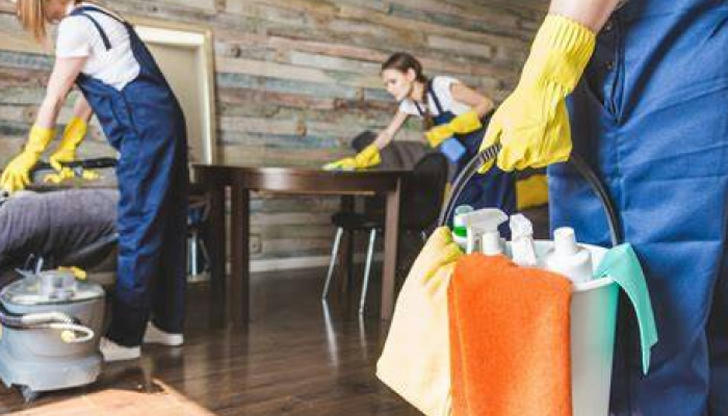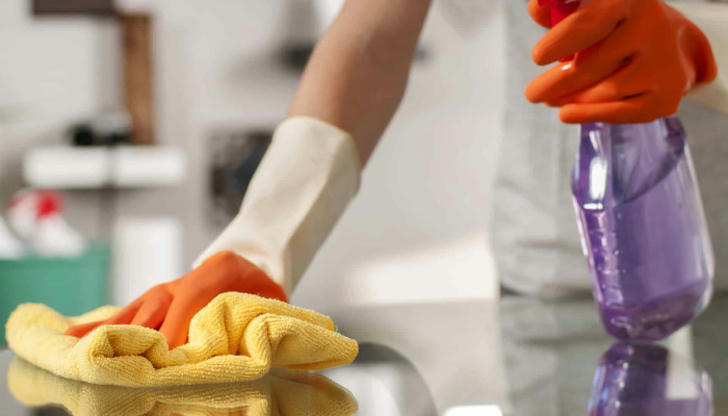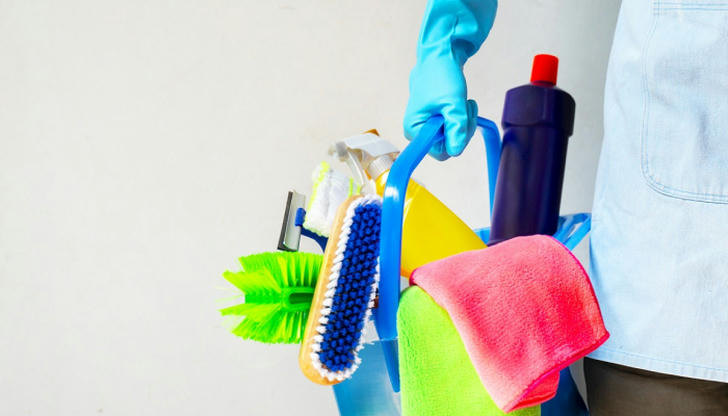Cleaning Services: Maintaining Hygiene and Order in Everyday Life
Cleaning services are indispensable in maintaining hygienic, healthy, and pleasant living and working environments. They cater to a wide range of needs, from residential homes to commercial establishments, ensuring that spaces remain free from dirt, dust, and harmful bacteria. In an era where cleanliness is paramount for health and well-being, professional cleaning services offer comprehensive solutions tailored to individual requirements.

Specific Services Offered
1. Residential Cleaning
Residential cleaning encompasses a variety of tasks aimed at keeping private homes spotless. This includes vacuuming carpets, sweeping and mopping floors, dusting surfaces, cleaning windows, and sanitizing bathrooms and kitchens. Professional cleaners also handle the removal of trash and recycling, as well as organizing cluttered areas for better space utilization. For instance, a family in suburban London hired a cleaning service after moving into a new home. The service not only cleaned every corner but also helped organize their belongings, making their transition smoother and more enjoyable.
2. Commercial Cleaning
Commercial cleaning targets offices, retail stores, medical facilities, and other business premises. It involves deep cleaning of common areas such as lobbies, reception desks, conference rooms, and corridors. Special attention is given to high-traffic zones and touchpoints like door handles, elevator buttons, and restroom facilities to prevent the spread of germs. Regular maintenance of these areas ensures a professional appearance and a welcoming environment for customers and employees alike. A case in point is a tech startup in San Francisco that saw a significant boost in employee satisfaction and productivity after implementing a regular cleaning schedule. Employees reported feeling more comfortable and focused in a cleaner office environment.
3. Industrial Cleaning
For industries with specialized equipment or hazardous materials, industrial cleaning provides targeted cleaning and decontamination services. This can include cleaning machinery, removing chemical residues, sterilizing production lines, and adhering to strict safety protocols. Such services are essential for compliance with health and safety regulations and maintaining operational efficiency. An automotive manufacturing plant in Detroit experienced fewer downtime incidents and improved worker morale after adopting a rigorous industrial cleaning regimen, which included weekly inspections and immediate cleaning of spills or debris.
4. Event Cleaning
Event venues require thorough cleaning before and after events to ensure optimal conditions for guests. Pre-event cleaning prepares the space, while post-event cleaning restores it to its original state. This service often includes carpet cleaning, upholstery care, and detailed cleaning of all used areas to leave no trace of the event behind. After hosting a large corporate conference, a hotel in New York City relied on its event cleaning team to quickly restore the venue to pristine condition, ready for the next booking within hours.

Duration and Frequency of Service
The duration of cleaning services varies widely depending on the size of the property, the type of cleaning required, and the frequency of visits. For residential clients, a typical session might last between 2 to 4 hours for regular cleaning, whereas deep cleaning could take longer. Commercial properties may require daily, weekly, or bi-weekly visits, each lasting several hours, especially for larger establishments. Industrial sites might need scheduled cleanings during off-hours to avoid disrupting operations.
Charging Methods
1. Per Hour Rate
One common charging method is based on the number of hours worked. Clients pay a set rate per hour, which allows for flexibility in adjusting the scope of work. This method is suitable for one-off or irregular cleaning sessions where the exact time needed can vary. For example, a freelance graphic designer in Berlin chose this option for her small studio, scheduling a cleaner for three hours twice a month.
2. Flat Fee
A flat fee structure offers a predetermined cost for a specified package of services. This approach benefits clients who prefer knowing exactly what they will pay upfront. Packages can be customized to include different levels of cleaning intensity and frequency. A restaurant owner in Sydney opted for a flat-rate cleaning package, which included daily kitchen sanitation and weekly dining area clean-ups, ensuring consistent quality without unexpected costs.
3. Subscription Model
Subscription-based models provide ongoing services at a fixed monthly or annual rate. These plans typically offer discounts compared to paying per visit and guarantee regular service intervals. Subscriptions can be tailored to meet the specific needs of the client, whether residential or commercial. A chain of coffee shops in Los Angeles adopted a subscription model, resulting in cleaner outlets and happier customers, as well as cost savings for the company.

Follow-up Services and Maintenance Tips
1. Routine Inspections
Professional cleaning companies often conduct routine inspections to assess the effectiveness of their services and identify areas needing improvement. Feedback from clients plays a crucial role in refining service quality and addressing any concerns promptly. A school in Tokyo implemented a feedback system for its janitorial staff, leading to faster resolution of issues and higher overall satisfaction among teachers and students.
2. Preventive Measures
Implementing preventive measures can significantly reduce the amount of cleaning required over time. This includes educating occupants about proper waste disposal, providing adequate storage for belongings, and using mats at entrances to trap dirt and moisture. A hospital in Melbourne introduced educational posters and additional waste bins, which led to a noticeable decrease in litter and easier maintenance of public areas.
3. Eco-Friendly Practices
Adopting eco-friendly practices not only benefits the environment but also promotes healthier indoor air quality. Using non-toxic cleaning agents, minimizing water usage, and recycling waste are some ways to achieve sustainable cleaning practices. A university in Vancouver embraced green cleaning policies, reducing its carbon footprint and enhancing its reputation as an environmentally conscious institution.

The Importance of Cleanliness in Society
1. Health Benefits
Clean environments contribute to better health by reducing exposure to allergens, pathogens, and pollutants. Regular cleaning helps prevent the transmission of diseases and supports overall wellness among residents and workers. During the global pandemic, businesses and institutions worldwide emphasized hygiene, with many relying on enhanced cleaning protocols to protect public health.
2. Psychological Impact
A tidy and organized space has positive psychological effects, fostering a sense of calm and productivity. Cleanliness can enhance mood, reduce stress, and improve focus, making it easier for people to enjoy their surroundings. A study conducted in an office building in Chicago showed that employees felt more motivated and less stressed in a well-maintained workspace, leading to increased job satisfaction.
3. Economic Advantages
Maintaining a clean facility can have economic advantages too. It can increase property values, attract more customers to businesses, and even boost employee morale and retention rates. A shopping mall in Singapore invested in premium cleaning services, which resulted in higher foot traffic and positive customer reviews, ultimately benefiting the retailers within the mall.

Conclusion
In conclusion, cleaning services play a critical role in our daily lives, ensuring that we live and work in safe, comfortable, and inviting spaces. By offering a wide array of services, flexible scheduling options, and competitive pricing structures, professional cleaning providers meet diverse needs across various sectors. Emphasizing the importance of cleanliness contributes to healthier communities and a more sustainable future. Real-world examples illustrate how effective cleaning practices can lead to tangible improvements in health, happiness, and economic success.
